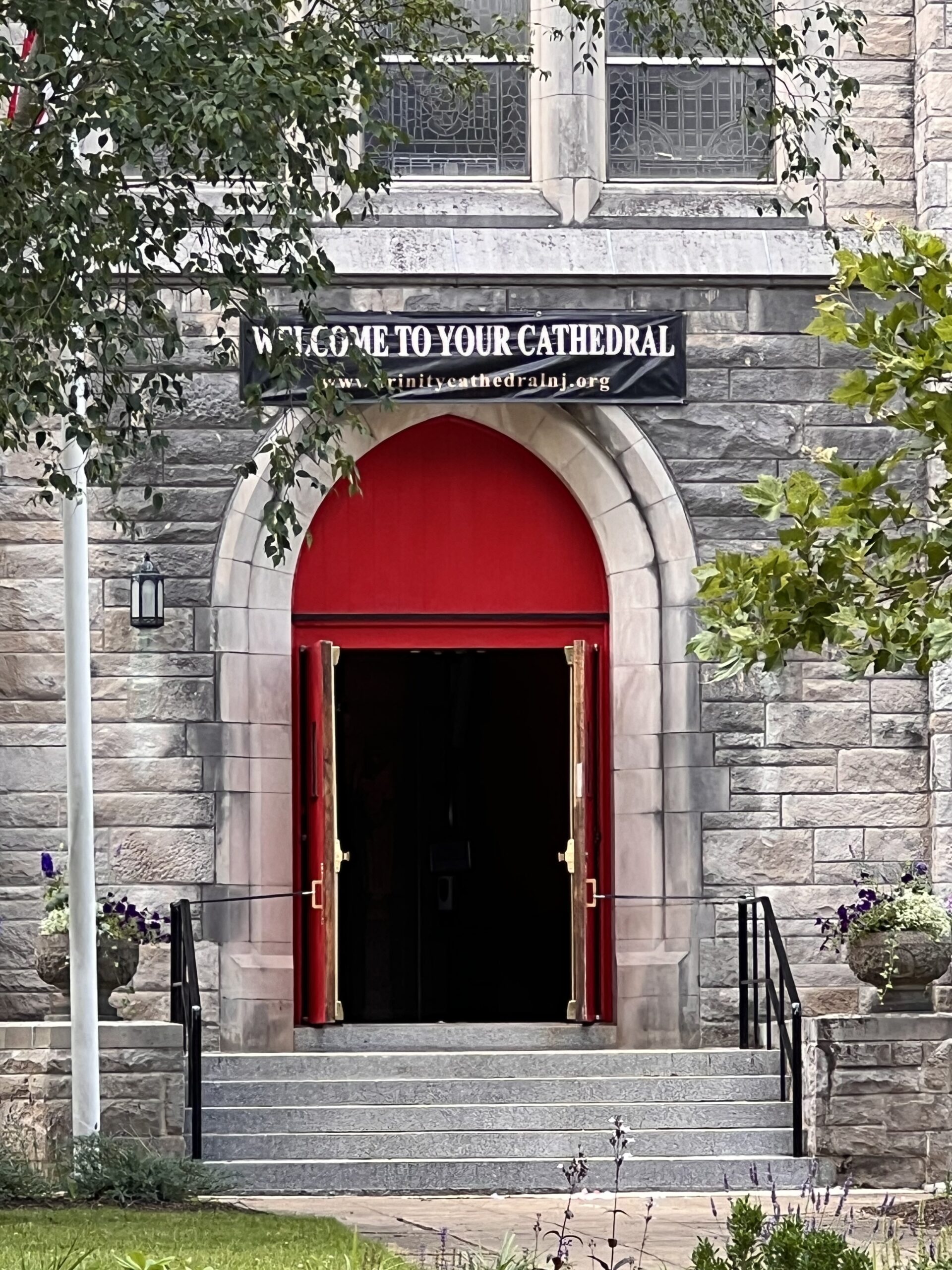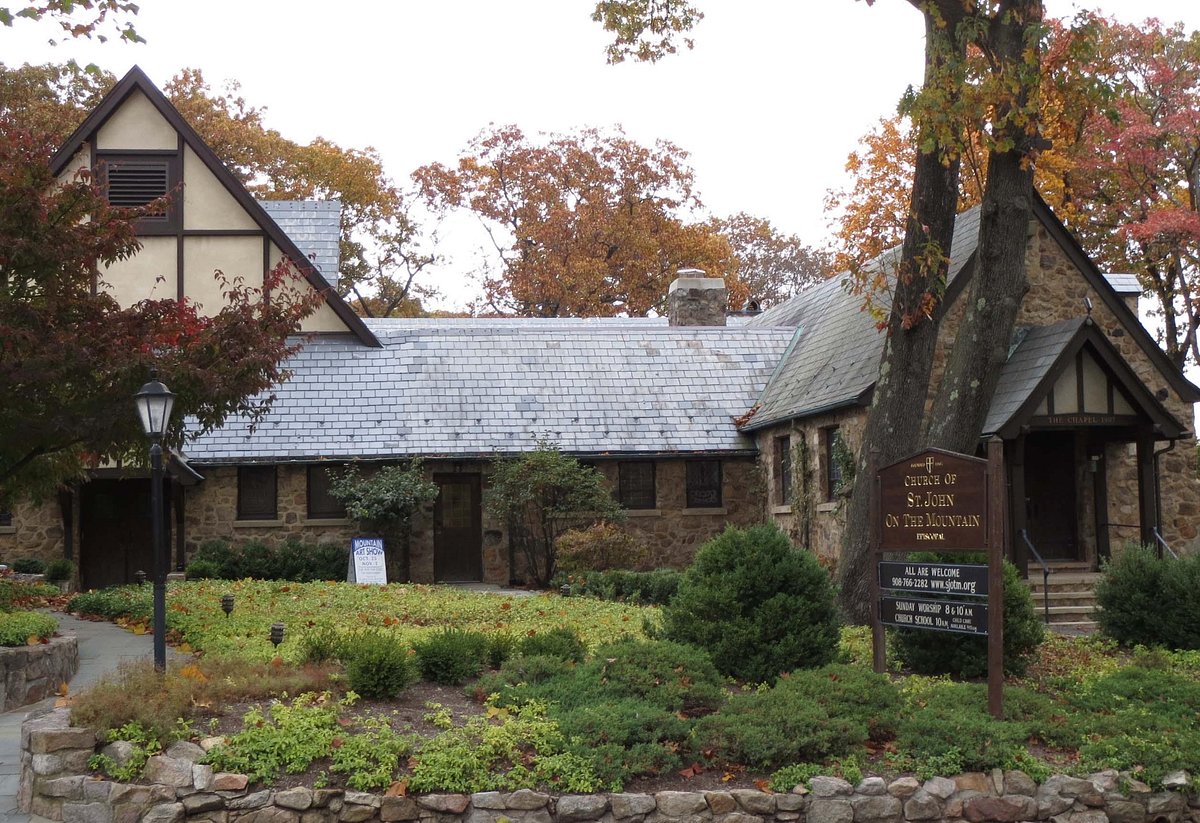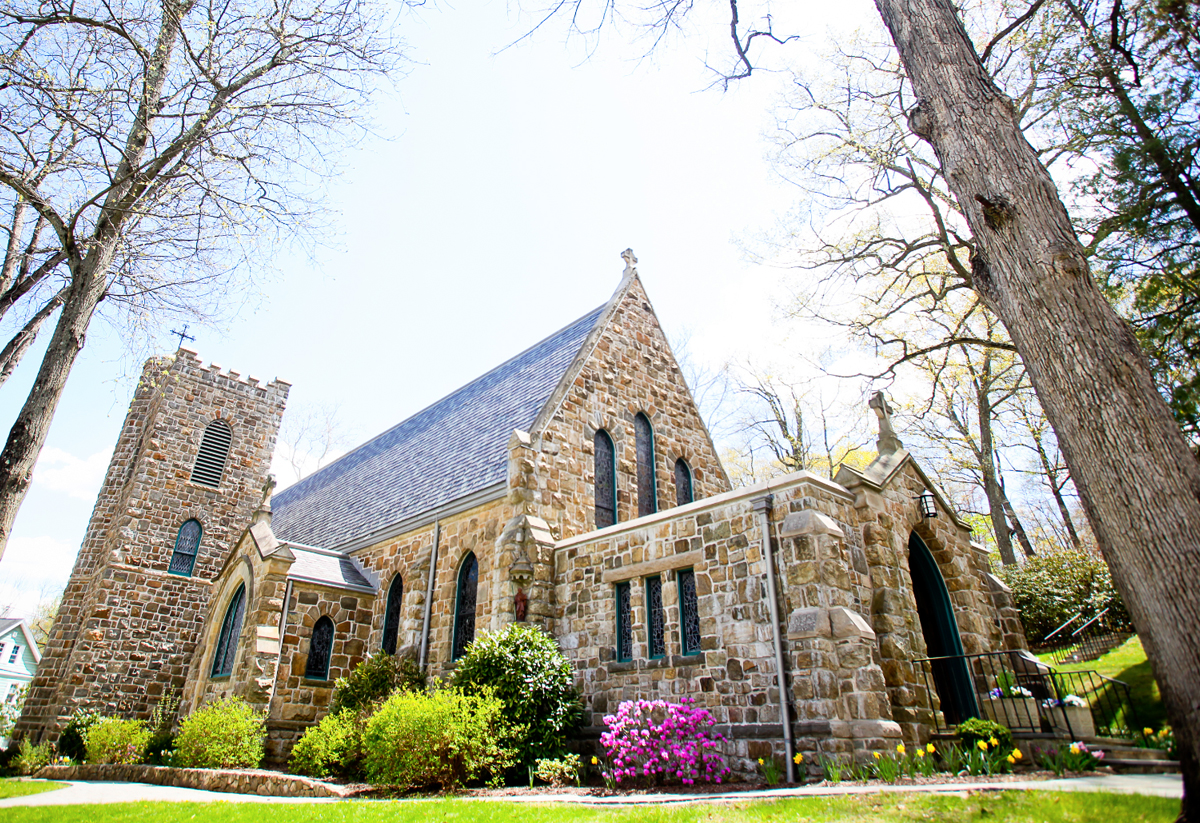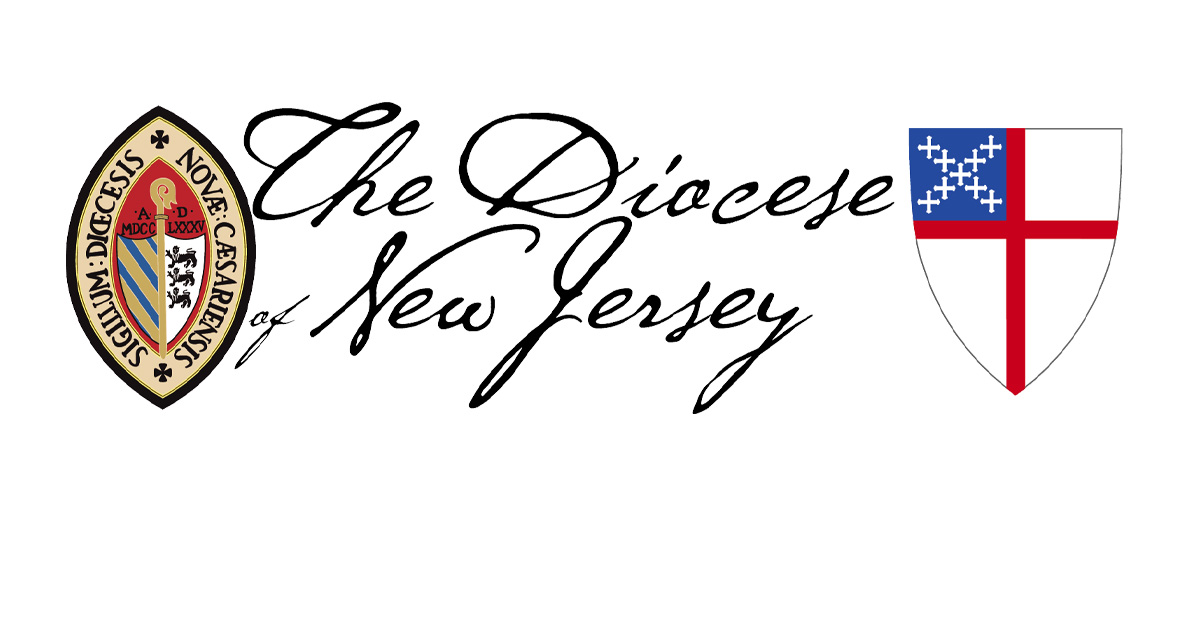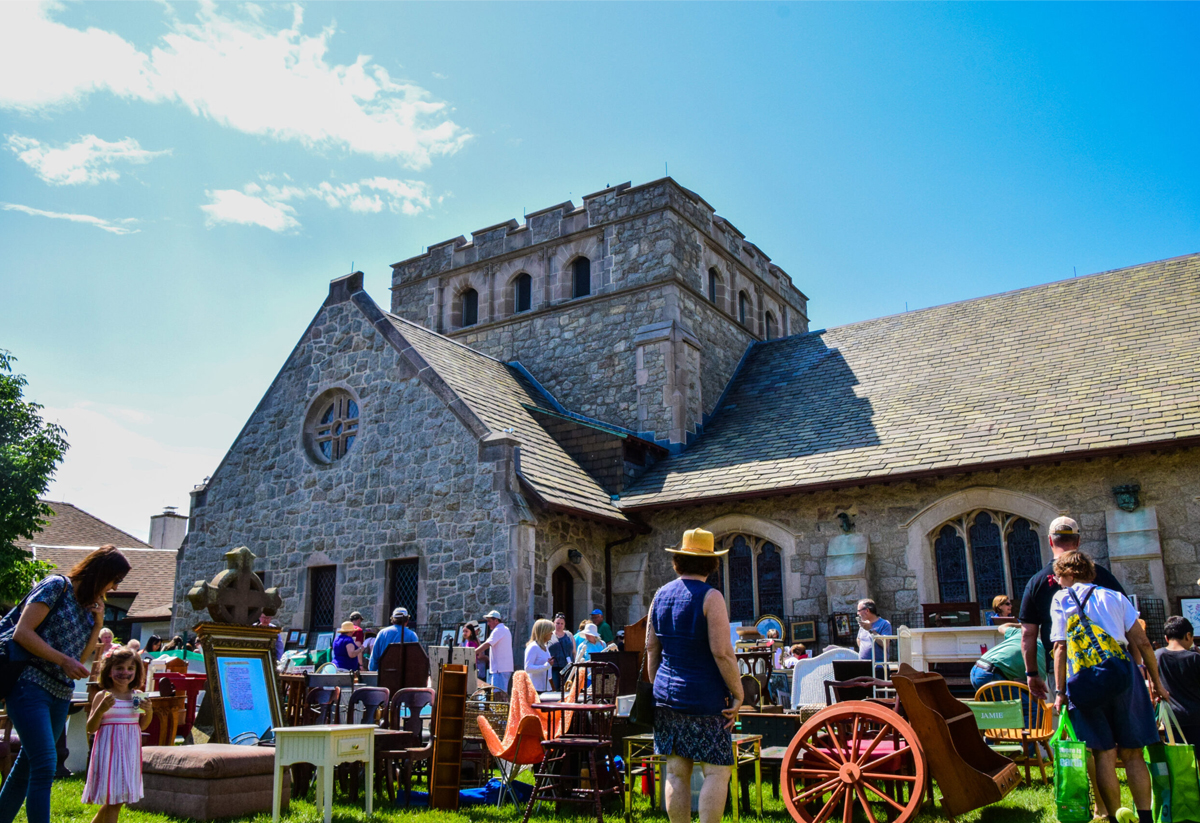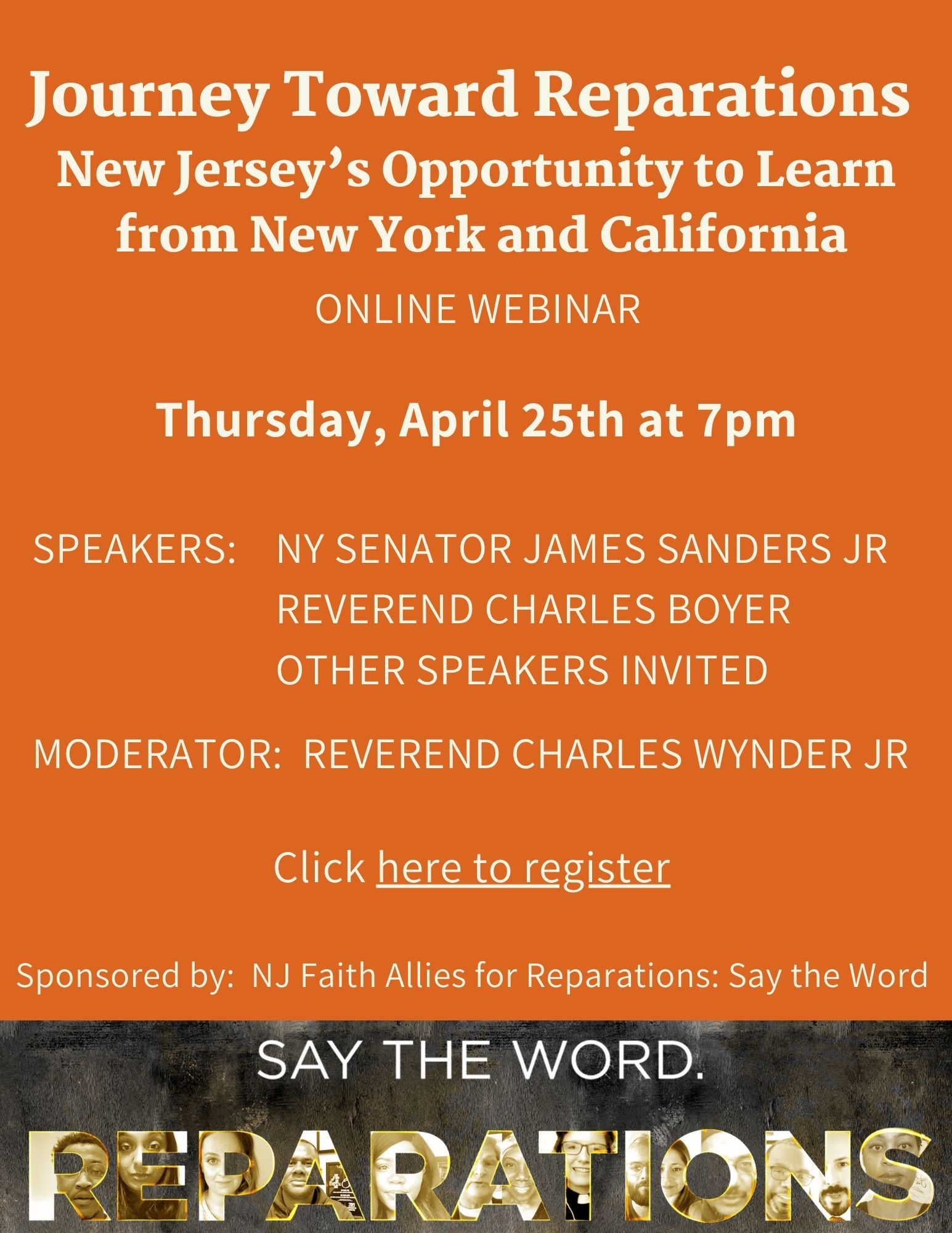The Bishop’s Address
The 227th Annual Meeting of Convention
The Episcopal Church in the Diocese of New Jersey
March 4, 2011
One day three men were hiking in the wilderness when they unexpectedly came upon a large, raging, violent river. They needed to get to the other side, but had no idea of how to do so. The first man prayed to God, saying, “Please, God, give me the strength to cross this river.” Poof! God gave him big arms and strong legs and he was able to swim across the river in about two hours, after almost drowning a couple of times. Seeing this, the second man prayed to God, saying, “Please God, give me the strength and the toolsto cross this river.” Poof! God gave him a rowboat and he was able to row across the river in about an hour, after almost capsizing the boat a couple of times. The third man had seen how this worked out for the other two, so he also prayed to God, saying, “Please, God, give me the strength and the tools and the intelligence to cross this river.” And poof! God turned him into a woman. She looked at the map, hiked upstream a couple of hundred yards, and then walked across the bridge.
My dear sisters and brothers of our beloved Diocese of New Jersey, we are assembled tonight within just a few days of Ash Wednesday and the beginning of Lent. But fast forward with me to Easter (which is the point of Lent, after all). According to Luke the Evangelist’s report of the first Easter (24:1-12), it was the women (Mary Magdalene, Joanna, Mary and others) who that day remembered that Jesus left a map. The map was His prediction that He would be arrested, tortured and crucified; and rise again. When they saw the empty tomb, they put that experience together with the map provided by Jesus’ words and they discovered a direction and a vision for their lives. They were the first to walk across the bridge from despair over the death of Jesus to joy over the resurrection of Jesus. And they immediately went to the apostles and began to preach: Christ is risen! The Lord is risen, indeed!
But, as we all know all too well, preaching doesn’t always produce immediate results. If we read on, the next verse tells us that the eleven men closest to Jesus were not impressed. “This story of theirs seemed pure nonsense, and they did not believe them” (Luke 24:11). These same men had heard the same predictions by Jesus as did the women. They should have been ready to believe. But they weren’t. They heard the Holy Gospel of our Lord Jesus Christ – Christ is risen! The Lord is risen, indeed! And then they shrugged, poured some more coffee and continued to read the Sunday paper. Sunday? Friday? What’s the difference? It was just another day in Galilee.
But God saw to it that that Sunday was different. Friday was not the end of Jesus. Stuff happened. Quiet, ordinary, unglamorous things. But they had life in them. They had Jesus in them. New life. Risen life. Easter life. Jesus appeared in a dining room one night. One morning Jesus cooked breakfast for them on the beach. A couple of them were walking down a country lane, all bummed out and depressed. A stranger joined them, opened up the map of the Scriptures and, when He broke bread with them, they recognized Jesus.
Whenever they recognized Jesus, they crossed over the bridge from settling for the way things are to devoting their whole lives to the way things are in the Kingdom of God. They were no longer eleven sad, disappointed and frightened men who stayed behind closed doors and reminisced about the things that Jesus taught and did. Now they went out to teach and to do those things. Their life became a great adventure, filled with preaching, healing, forgiveness; arrests, beatings, shipwrecks; and a joy that no one could take away. They were not only up for it; they were on fire for it. They knew what life was for; it was for loving and following Jesus, together.
One of the most popular books in recent years was called The Worst-Case Scenario Survival Handbook. It is “the indispensable guide for surviving life’s sudden turns for the worse. Survival experts provide illustrated, step-by-step instructions on what you need to know FAST.” And what do you need to know? “How to deliver a baby in a taxicab; how to escape from killer bees; how to survive if your parachute fails to open.”
But, as useful as that information is, the Church has never specialized in giving advice on how to survive the worst-case scenario. Rather, the Gospel calls us to give up the project of saving ourselves from the worst-case. Instead, the Gospel announces that, in Christ, we may live without fear; proclaims that we are free to live the best-case scenario; invites us to follow those first apostles, that is, the women who, on Easter Day, crossed the bridge from fear to faith, from guilt to freedom, from grief to joy.
Listen: there is something worse than not surviving; something worse than the worst worst-case scenario; and that is to survive and not to know why. Helen Keller, the woman who made history by learning to overcome her disabilities was once asked if there were anything worse than being blind. She answered, “Oh, yes! There is something worse than being blind. It is being able to see and not having any vision.”
It is an honor and a delight to present this, my eighth Address to the Convention of the Diocese of New Jersey. We are a people with a vision. “The Diocese of New Jersey is one family of diverse and unique congregations, belonging to Jesus Christ and belonging to one another, for Jesus’ sake. Together, we are a missionary community, celebrating the abundant life of Christ (John 10:10) and sharing that life with the world that God so loves (John 3:16). Our vision is to build up the Body of Christ and reach out to the world in Christ’s name. . .”
Here I have the honor, on behalf of our grateful Diocese, to thank Ms. Annette Buchanan, of St. Augustine’s Church, Asbury Park, who led our visioning process, chaired the Right Onward Visioning Committee and has been a tireless advocate for our vision. I look forward to working with her successor, the Rev. Philip Carr-Jones, and the Committee as we focus on vision initiatives having to do with serving the poor, striving for justice and sharing our resources joyously and generously.
Building up and reaching out. Every week it is my privilege to catch glimpses of our vision being lived out through our 155 congregations, 375 clergy and 50,000 members. While we struggle in many churches much of the time and in some churches all of the time, there is much to celebrate and lift up in our common life and service to Jesus Christ. I want to tell you about them. First, there is Jesus, who is praised, worshipped, hallowed and adored by 12,000 souls in 155 Episcopal churches on an average Sunday in our Diocese.
Our vision is that we worship the Lord “radiantly and reverently.” Radiance and reverence may be found in all sorts and conditions of churches and in all styles of worship. Whatever the practice in your congregation, let your worship be Christ-centered. Let it be unmistakably clear that “it is very meet, right, and our bounden duty” to get our praise on, for Jesus’ sake. In I Peter 1:8 we find direction: “Although you have not seen him, you love him; and even though you do not see him now, you believe in him and rejoice with an indescribable and glorious joy.” Sing well, pray with intention, be a sacramental, radiant and reverent community and let me catch you praising the Lord with glorious and indescribable joy.
I address you tonight as disciples, followers, learners, apprentices of Jesus. Discipleship is what we do after we say Christ is risen and Jesus is Lord. Early in the Acts of the Apostles, the authorities recognized that the disciples were different after Easter. Easter had consequences in the disciples’ lives. They not only could not put Easter back in the tomb, they insisted on living as if Jesus were out and loose in the world. We are told (in 4:13) that the authorities saw in the disciples a remarkable boldness. These are the same followers who were uneducated and ordinary and yet amazing. And, it was said that they recognized them as companions of Jesus.
If you were searching for recognizable companions of Jesus, where would you look? At the Altar, of course, where we recall how He said, “This is my body; this is my blood.” And where else? In the lives of the hungry, the thirsty, the stranger, the naked, the sick and the prisoner. Whenever we serve the poor, we keep company with Jesus. As we read in Matthew 25:40, “Truly, I tell you, just as you did it to one of the least of these who are members of my family, you did it to me.” I testify that I have seen you keeping company with our Lord in your food pantries, soup kitchens, feeding programs and used clothing shops; prison ministries and hospital chaplaincies. In Camden, in Trenton, and Elizabeth and other urban centers. In small towns and rural districts, where churches open their doors and invite people not only to be served but to find hope and dignity and new life in Christ.
We can praise God tonight for new and renewed outreach in and beyond New Jersey. Less recognized, for example, our new companion diocese relationship with Central Ecuador. Led by Pete Ackerman, of St. John-on-the-Mountain, Bernardsville, the Companion Diocese Committee has done great work as companions of Jesus and with our new friends. We are helping them in the ways for which they have requested our assistance. But one has only to see their faces, hear their voices and be embraced by them to experience how much we need what they have to share.
On other fronts, I am greatly heartened by the new initiative, led by Canon Phyllis Jones, our CFO, to bring the very successful Urban Promise program from Camden to Trenton. And I’m ridiculously happy that Clara Gregory of this Cathedral congregation now serves as the Jubilee Officer of our diocese. We can also be proud of the diocesan commitment to fund Millennium Development Goals, thanks to the Rev. and indefatigable Lisa Caton. And let us not fail to mention that our pledge to The Episcopal Church changes lives among poor people and poor churches throughout the world through partnerships with the churches of the Anglican Communion.
I am moved to call attention to the fact that poor and marginalized people need not only to be served but empowered; not just a handout but an advocate; not only charity but justice; not simple outreach but straightforward outrage. We should all be alarmed at the various ways in which powerful political and media figures are failing us because they are far more clever at blaming, shaming and scapegoating than they are at doing justice, loving kindness and walking humbly with God (Micah 6:8).
I am proud to be an Episcopalian for many reasons, not the least of which is our baptismal vow to respect the dignity of every human being. That leads us, I trust, to stand with Blacks, Latinos, Asians, Native Americans, women, gays and lesbians, the disabled, immigrants and those who want to become immigrants, children and, yes, their teachers, whenever any of these and other groups are targeted as “the problem.”
All that is needed for such bullies to have their way is for us who know better to remain silent. Let us stand up, stand up, for Jesus, for justice, kindness and humility.
And, while we are standing up, let us reach down, into our pockets and pocketbooks, for Haiti. The Diocese of Haiti is the largest diocese in The Episcopal Church, located in this poorest country in the Western Hemisphere. With the rest of the country the Church was devastated by the earthquake of January 12, 2010. They are members of Province II, partners with the several dioceses of New York and New Jersey, along with Europe and the Virgin Islands. Their bishop, Zache Duracin, has asked The Episcopal Church to help Haiti by raising the funds to rebuild their Cathedral. I will present this opportunity to the Diocesan Council in 10 days’ time and ask them – as I ask you tonight – to embrace this challenge, doing something beautiful for God.
Matthew 25, mission and outreach all call to mind those who serve as vocational deacons in this Diocese. Let me invite us all to thank God for our 75 or more deacons. I am wonderfully and ably assisted in the care and direction of deacons by our three Archdeacons: the Venerables Victoria Cuff, John Hanson and Keith McCoy. And I celebrate the School for Deacons, led by the Rev. Linda Moeller, Director, and the Rev. Eric Brechner, Chaplain.
Like you, I respect and value our deacons’ ministries in the Church and in the world and we can be grateful that so much of our outreach efforts fall under their direction and rise under their inspiration. They are, truly, companions of Jesus. Without, in most instances, any compensation, they faithfully labor to build up the Church and reach out to a hurting world in the name of Christ. I am privileged to enjoy a special relationship with them but I have not found that they have been passive, obsequious, shy or retiring. I don’t need that. I do need their wisdom, their advice and counsel. I hope that this Convention will do nothing to exclude them from the Councils of this Church. No pun intended.
Our diocesan programs have continued to grow and flourish, even in this harsh economic climate. We are poised to launch new initiatives in campus ministry on Kean University campus through St. Elizabeth’s in Elizabeth and at Rowan University campus through St. Thomas’ Church in Glassboro. Our youth ministry continues to touch the lives of young people under the direction of Canon Short and Deacon Debi Clarke. And the ministry of this great Cathedral has been immeasurably strengthened and restored through the efforts of its members, our Diocese and the humble but determined leadership of René John, our Dean. They are an answer to the prayer that things which were cast down are being raised up and things which had grown old are being made new. Lord in your mercy you have made this Cathedral of New Jersey new. Thank you, Lord.
I’m very pleased, indeed, that the Committee on Lifelong Christian Formation of our Diocese has brought forward the book entitled Almost Christian, by Professor Kenda Creasy Dean of Princeton Theological Seminary. It is a disturbing and challenging portrait of churches like our own that have failed to connect with the lives of young people. We need the minds of those who would remind us that are called to know, love and follow a person, Lord Jesus Christ. We are not to make our faith into a Trivial Pursuit. We are not here to promote what Professor Dean calls “benign whatever-ism,” or a generalized content-less niceness. We are to learn and practice creedal Christianity. Ours is a faith with content at the core and with a Tradition (the “living faith of the dead”) with which we live and learn, in dialogue.
So, let us read this one book together. And then another. And another. Let’s blog together. It is my sense that we need a lot more emphasis on education and formation of Christian disciples of all ages. While we’re at it, I would think we could invite a lot more of our people to prepare for and be presented to the Bishop for the Reaffirmation of Baptismal Vows. I know that every priest would welcome anyone who is interested in and committed to greater spiritual maturity and a consequential faith. I remind us that the reason that the authorities recognized the disciples as companions of Jesus is that they had spent time in the company of Jesus. What a tragedy it is when people do the work of Jesus without ever coming to know him as Savior, Lord and friend. Do not attempt to live and serve in the church sustained by only an eighth-grade Christian education.
Another concern in this connection is the consideration of the proposed Anglican Covenant by the General Convention in 2012. I am much encouraged by our Deputation from New Jersey and their plans for serious engagement with the Covenant and the issues that its adoption raises. I respectfully ask that the Deputies and Alternates find ways to share their discussions with the entire Diocese. This is worth our very best thoughtful and prayerful discernment.
One of the new developments in diocesan administration is the addition of the Rev. Gretchen Zimmerman as the chair of the Board of Missions and my Vicar for Missions. She has done wonders on behalf of mission churches in her first year of service. It bears special mention that she has done so with the full cooperation and remarkable sacrifice of St. Raphael’s in Brick Township, where she continues as Rector. I honor her for her leadership, compassion and courage. Working together with the Property Summit Task Force, Mother Zimmerman and the Rev. Frank Hubbard have done pioneering work in addressing the needs of our mission churches, including their need to operate safe and secure facilities.
My friends, the time has come to for us to face squarely and fairly the fact that some churches, being unsafe, should no longer remain open; and other churches can no longer afford to remain open. And still other churches have so lost any discernable sense of mission – other than to minister to their own – that they should not remain open. No bishop, least of all this bishop, wants to be known as the one who closed churches. But just as doctors must sometimes practice medicine by delivering hard news that no one wants to hear, so I have come to see that it is part of my calling in this Diocese at this time to initiate and sustain the faithful deliberative process that will help some congregations to see that their mission in their present facility and location is completed. Pray with me that the Lord, in His mercy, will so guide us in these decisions that they, too, will help to make New Jersey new.
I once heard a story of a black preacher who gave a sermon on the stewardship of money. He said, “This church is ready to get up and run!” The church said, “Amen.” Encouraged, the preacher went on: “And this church is going to rise up and fly!” The people said, “Preach, Sir!” Then the preacher went all out: “And if this church is going to get up and run and rise up and fly, it’s going to need money!” At this point there was dead silence, until a voice in the back was heard to say, “Ah, Pastor. Couldn’t we just walk?”
We had a dream. Last year this Convention said with our words and by our actions that we wish to expand the staff through the addition of an Assistant Bishop. But you won’t find it there in the proposed budget for 2011. We have not raised sufficient income to include the position in our budget. I’m happy to continue in this ministry as the sole bishop for this Diocese. As I’ve said many times, so I repeat to you tonight: I love Jesus, I love Jersey and I love you and the work that we’ve been given to do together. By the grace of God in your prayers I plan to continue. I bear no resentment, no ill will nor even any great disappointment that, in the most challenging financial era since the Great Depression we have had to put off one of our dreams.
I will add two other comments. Please, do not reduce our commitment to the mission of The Episcopal Church as the means to fund an Assistant Bishop or other expenses. I acknowledge that the budget is the budget of the Diocese of New Jersey and not the Bishop. If, however, the Convention, in its wisdom, decides to fund the position by that means, I must tell you, with all due respect and affection, that I will not make such a hire. In my nearly 36 years as a priest and seven of those as your bishop I have taught and preached and practiced that our call is to give for mission first. I cannot stand before you and ask you to give sacrificially from your parishes to the diocese if the diocese fails to give sacrificially to The Episcopal Church. I hope that we will not decide tomorrow to step back from our commitment to The Episcopal Church and the Anglican Communion.
Secondly, I am ready to review, with your help, the entire system for funding our diocesan mission through the Fair Share pledging. When only 33 out of 155 churches (21%) pledge the full asking, we know that have to examine our practices. We will face our challenges together, with the help of God the Holy Spirit. How do we hold one another in bonds of affection and mutual ministry and also hold one another accountable in shared sacrifice? Lord, in your mercy, make New Jersey new.
None of this is easy to do. It is simply too good not to try to do it for the sake of our good and loving Lord. Igor Stravinsky once wrote a new piece that contained a difficult violin passage. After several weeks of rehearsal the solo violinist came to Stravinsky and said that he could not play it. He had given it his best effort, but found the passage too difficult, even unplayable. Stravinsky replied, “I understand that. What I am after is the sound of someone trying to play it.” (As told by Philip Yancey in Church: Why Bother?).That is the Lord’s plan: the Church trying to live the Kingdom.
The Right Reverend George E. Councell, D.D.
Bishop of New Jersey

